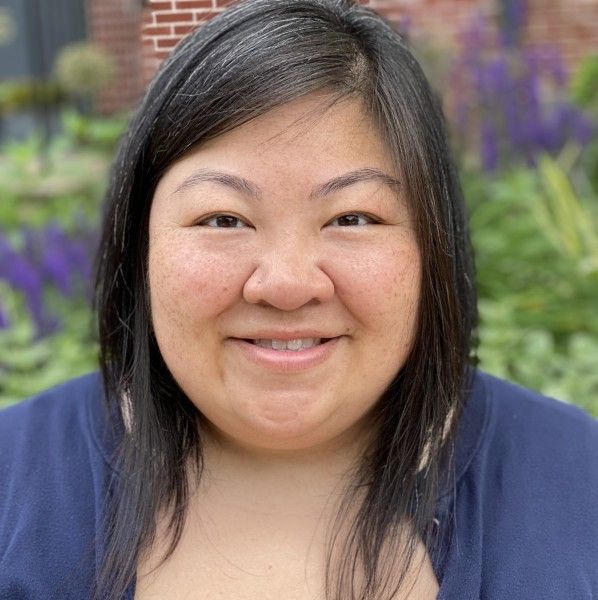Lesley Chow, an assistant professor of bioengineering and materials science and engineering in Lehigh University’s P.C. Rossin College of Engineering and Applied Science, is a 2021 recipient of the Early-Career Undergraduate Research Mentoring Award (ECURMA) presented by the Engineering Division of the Council on Undergraduate Research (CUR).
The peer-nominated award recognizes Chow’s contributions as a mentor to undergraduate students “from a diverse range of backgrounds and identities” and her support of their efforts to share their work with the scholarly community. The recognition also confirms Chow’s track record of involving undergraduates in her research lab, as well as her commitment to expanding research and other experiential learning opportunities for students.
Over the past six years, she has supervised more than 30 undergraduate students in research activities, with many going on to receive prestigious awards and fellowships, such as the National Science Foundation’s Graduate Research Fellowship Program. Students from her group have presented their research at the David and Lorraine Freed Undergraduate Research Symposium, hosted annually by the Rossin College, as well as at the Biomedical Engineering Society Annual Meeting and regional conferences, such as the Northeast Bioengineering Conference.
“This award is well-earned by Dr. Chow, as her students, both current and prior will attest,” says Sabrina Jedlicka, an associate professor of bioengineering and materials science and engineering and the Rossin College’s associate dean for academic affairs. “She embodies the spirit of inclusive mentorship and has inspired many scientists and engineers—new and established—to strive for a more holistic approach to their mentorship philosophy.”
The Chow Lab is currently focused on approaches to improve regeneration of musculoskeletal tissue interfaces, such as the osteochondral interface between bone and cartilage. Recreating these complex interfaces poses a significant engineering challenge as native tissues possess gradients in biochemical, structural, and mechanical properties that are critical for normal biomechanical function. Her team is developing biomaterials-based strategies to guide spatial cell behavior and tissue formation to engineer tissues that mimic these structure-function-property relationships.
“We have such an incredibly talented pool of undergraduate students at Lehigh, and I'm so fortunate to be able to have the best of the best doing research in my lab,” Chow says. “ I am particularly proud of the inclusive environment we have created that enables trainees to be their whole selves. I am so proud of their successes and can't wait to see what they do next.”
Since 1978, CUR has brought together leaders in higher education focused on “providing high-quality and collaborative undergraduate research, scholarly, and creative activity opportunities for faculty and students.” The organization supports the idea that involvement in research activities helps undergraduates succeed in their studies and professional aspirations.
Chow joined Lehigh University in 2015 following her postdoctoral training at Imperial College London and her PhD at Northwestern University (2009). Her research interests focus on the design of novel biomaterials for tissue engineering and regenerative medicine applications.
Building on her previous experience with supramolecular design and biomaterial fabrication, the Chow Lab combines different materials and advanced fabrication techniques to generate scaffolds with architectures and spatially organized functionality that resemble native biological tissues.
She is particularly interested in utilizing 3D printing and self-assembly approaches to organize synthetic polymers, natural biopolymers, and peptides into hierarchical structures and compositions. These scaffolds serve as platforms to deepen understanding about how native tissue organization affects cell and tissue function across length scales and improve clinical translation of biomaterials.

